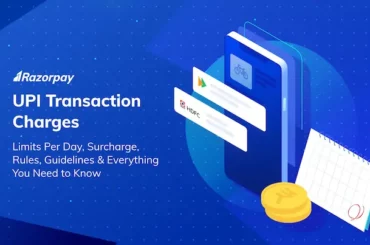Latest UPI Transaction Limit for Tax Payments
By raising the limit, the RBI and NPCI aims to promote digital payments and reduce reliance on cash-based transactions. This change is designed to simplify and expedite the tax payment process for both individuals and businesses.
The increased limit will particularly impact high-net-worth individuals and businesses, who often deal with substantial tax payments. With UPI’s secure and instant transaction capabilities, taxpayers can now make large tax payments with ease.
Impact on Taxpayers and Economy
Benefits for taxpayers
The increased UPI limit for tax payments offers several advantages to taxpayers:
- Convenience: Taxpayers can now settle larger tax liabilities with a single transaction, reducing the need for multiple payments.
- Time-saving: The process of making tax payments becomes quicker and more efficient, freeing up time for other tasks.
- Reduced paperwork: Digital payments eliminate the need for physical paperwork, such as cheques or demand drafts, streamlining the process.
- Enhanced security: UPI transactions are generally secure, protecting taxpayers from fraud and data breaches.
Potential economic implications
The hike in the UPI limit for tax payments is expected to have a positive impact on the economy:
- Boost to digital payments: By facilitating larger tax payments through UPI, the government is promoting digital transactions, reducing cash dependency.
- Improved tax compliance: The ease of making tax payments through UPI can encourage better tax compliance among taxpayers.
- Strengthened financial system: Increased digital transactions contribute to a more robust and transparent financial ecosystem.
- Government revenue: Timely tax collection, made possible by efficient payment methods like UPI, can improve government revenue.
According to the National Payments Corporation of India (NPCI), UPI transactions have witnessed significant growth, with a year-on-year increase of 45% in July 2023 to reach 14.43 billion transactions. This surge in UPI usage underscores the platform’s potential to drive financial inclusion and economic growth.
Expert Insights on UPI Limit Hike for Tax Payments
The RBI’s decision to increase the UPI transaction limit for tax payments to Rs 5 lakh marks a significant milestone in India’s digital payment journey.
Rahul Jain, Chief Financial Officer of NTT DATA Payment Services India, highlighted the transformative potential of this move. He emphasized that the increased limit will not only simplify tax payments for individuals and businesses but also contribute to a more robust and efficient tax collection system.
By reducing reliance on cash transactions and encouraging digital payments, this initiative is poised to propel India further towards a cashless economy.
Frequently Asked Questions
Q. 1) What is the new UPI transaction limit for tax payments?
The Reserve Bank of India (RBI) has increased the UPI transaction limit for tax payments from Rs 1 lakh to Rs 5 lakh per transaction.
Q. 2) When will the new limit come into effect?
The new limit will come into effect on September 16th, 2024.
Q. 3) How will this change benefit taxpayers?
The higher limit will allow taxpayers to make larger tax payments in a single transaction, saving time and effort. It also reduces the need for multiple payments, which can be inconvenient.
Q. 4) Will this change impact other UPI transactions?
The increased limit applies specifically to tax payments and does not affect the overall UPI transaction limit for other purposes, which remains at Rs 1 lakh per transaction.
Q. 5) Is it safe to make large tax payments through UPI?
UPI is generally considered a secure payment method. However, it’s essential to use strong passwords, avoid sharing UPI credentials with others, and keep your device protected from malware.
Q. 6) What other changes can be expected in the UPI ecosystem?
While the specific details are yet to be announced, the increased UPI limit for tax payments could pave the way for further enhancements in the UPI ecosystem, such as higher limits for other transaction categories and expanded use cases.
Q. 7) What are the security measures for making high-value tax payments via UPI?
UPI platforms employ robust security measures, including two-factor authentication and end-to-end encryption, to ensure that high-value transactions, such as tax payments, are processed securely.

